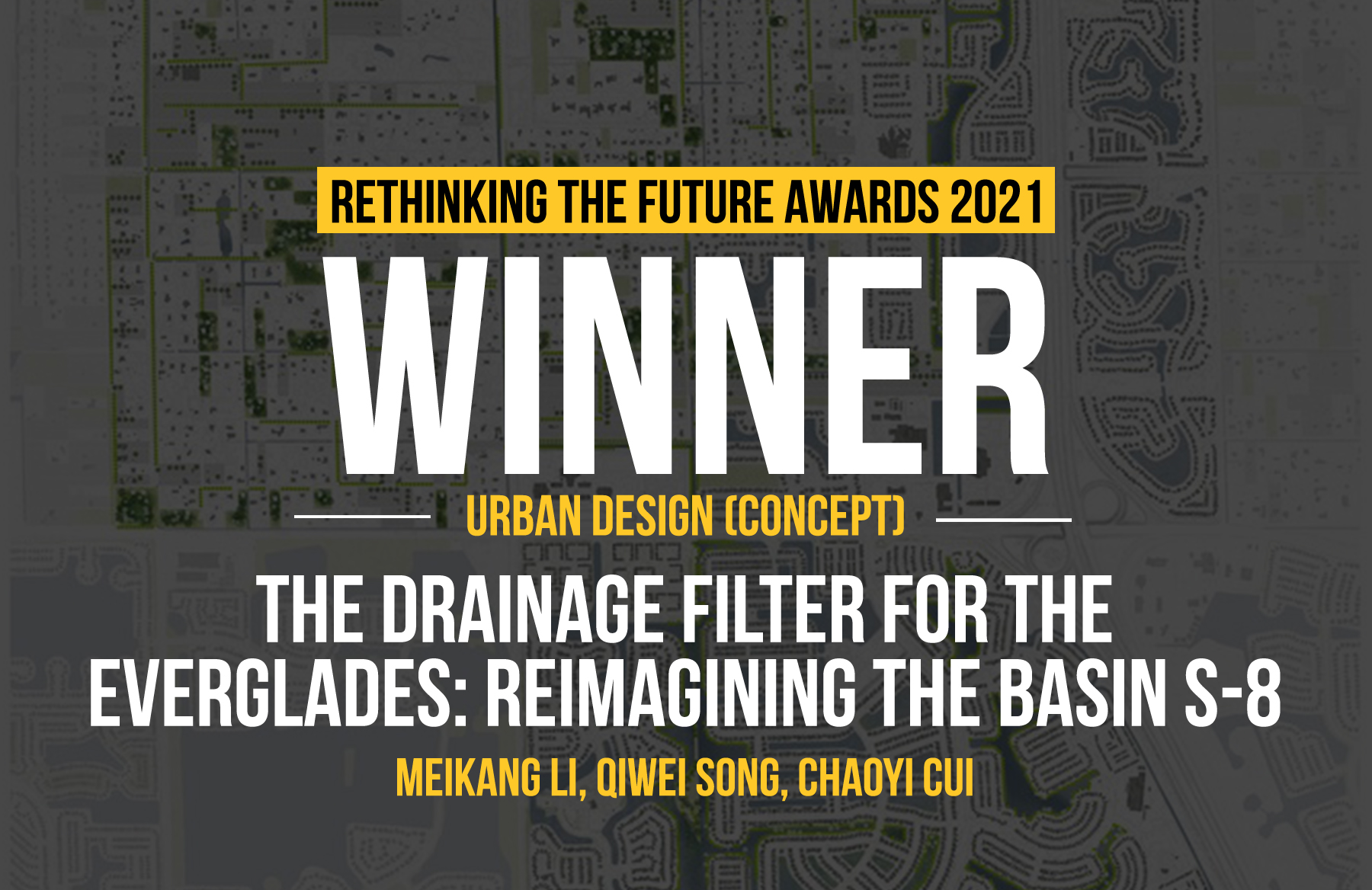In the past 80 years, a rapid urbanization process has been encroaching on the Everglades in Florida. A network of canals and dams was built to divert water for agriculture and to drain the land for development.
Rethinking The Future Awards 2021
First Award | Urban Design (Concept)
Project Name: The Drainage Filter for the Everglades
Design Team: Meikang Li, Qiwei Song, Chaoyi Cui
Area: 2600 ha
Year:2018
Location: Broward County, Florida, USA
As a result, the Everglades has shrunk by around half. Stormwater runoff from urbanized areas, along with its associated pollutant load, has detrimental impacts on the ecosystem. The treatment of eutrophication in Everglades reserve to protect groundwater has become a tremendous financial burden of the government for decades. A large portion of the runoff nutrients comes from non-point source pollution and can be tracked to local equine industries in the Town of Southwest Ranches where fertilizers are widely applied in plantations, nurseries, and horse ranches. The project researched the Broward County regional drainage system masterplan and selected the Basin S-8 in C-11 Watershed to propose a sustainable landscape framework.
The framework utilizes available lands at a regional scale to lengthen the stormwater drainage distance between pollution sources and the Everglades. It takes advantages of the existing manmade hydraulic infrastructures to divert the polluted runoff into available lands where decentralized green infrastructures are installed to tackle the contamination issue through a toolkit of topographic and phytoremediation strategies. By reconsidering the grading and vegetation, selective plants can metabolize toxins in water runoff along the route where natural power plays a dominant role. This systematic landscape approach blurs the boundary between natural and artificial infrastructures. The project breaks through the ‘defined’ edge between nature and artificiality. It demands a holistic landscape planning approach that is able to leverage existing land uses and enhances long-term resilience for the entire urban and natural systems which transcend political boundaries.
As an extension of the Everglades natural systems, it envisions an integrated way to make suburban and exurban communities a major agent in the restoration of the Everglades through an interwoven landscape network and amendments to city zoning ordinances. Given the immense site scale and complexity of stakeholders, the network will be implemented in three phases. Departing from the construction of fundamental green infrastructures in publicly owned space such as the right of way, the vegetated filter corridors enrich experience along horse trails. Incentive-based policies engages private sectors and community groups, their participation will incrementally improve the function for ecological and aesthetic benefits. The project is proactive in building an environmentally responsible framework and zoning regulations for future generations.
The Drainage Filter is a planning network that makes the natural system in urban context legible, which benefits and restores ecological integrity. It is a cost-efficient improvement to existing artificial treatment infrastructures and depicts a sustainable paradigm for future. What we have in common today are the challenges we are facing and the courage to break down the conventional way of engineering our city, and to build an eco-friendly future.
